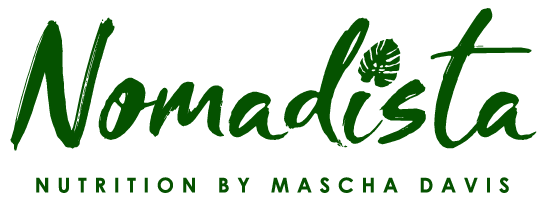You may have heard the term ‘holistic’ health, but what does that really mean? As a registered dietitian and business owner, I follow a holistic health philosophy and today I'm going to break down what that means and how you can apply it to your life to feel your best from the inside out.
What is Holistic Health?
Holistic health considers multidimensional aspects of wellness. Meaning, it takes into consideration nutrition, but also so much more.
Here are 5 pillars of holistic health:
Nutrition and food. Yes, food is fuel, but it's also meant to be enjoyed. I am passionate about helping my clients cultivate a happy and healthy relationship with food by learning lifelong, easy-to-maintain habits. Focusing on habits around nutrition instead of quick “fixes” and fads is key. Nutrition should be individualized to you, your goals, your needs and even your genetics. This is why I offer nutrigenomics testing to provide the most individualized results possible. This is DNA testing of over 70 markers analyzing your personal responses to different nutrients, vitamins, types of exercise and much more.
Exercise. Exercise is beneficial for cardiovascular health, bone health and mental health too. Where people often struggle is falling into an all or nothing mindset around movement. Your workout doesn’t have to be 60+ minutes and super intense everyday. Remember all movement counts and the more you add in small moments of movement throughout the day, the better. For example, taking the stairs when possible, waking for 10 minutes on your lunch break or even cleaning the house all counts!
Sleep. Did you know not getting enough sleep can actually cause increased feelings of hunger and negatively impact the choices you make around food? This is why it's so important to try to get 7-9 hours of quality sleep each night. I know this isn’t always easy, but things like night time meditation or sleepy herbal teas can help promote more restful sleep.
4. Stress management. You aren’t truly healthy if your mindset is in a negative place. Being chronically stressed increases cortisol which can suppress your immune system and make it difficult to maintain a healthy weight. Like exercise, stress management doesn’t have to be all or nothing. Implementing one thing each day for relaxation is a good step. For example: a 5 minute meditation, journaling before bed, seeking out a therapist or spending more time in nature are great choices.
5. Environment. Yes, what you eat and how you move matter but your environment plays a key role too. While we can’t control everything about our environment there are certain things we can do to support our health and the ecosystem. For example, choosing glass meal prep containers over plastic, trying reusable straws, using Stasher Bags instead of plastic bags. This is important because chemicals in plastic may have a negative impact on people's hormones.
As you can see there are many factors that play a role in navigating your health journey. Health can feel overwhelming, but it doesn’t have to be. If you want more support reaching your health and nutrition goals, learn more about my nutrition counseling services here.



